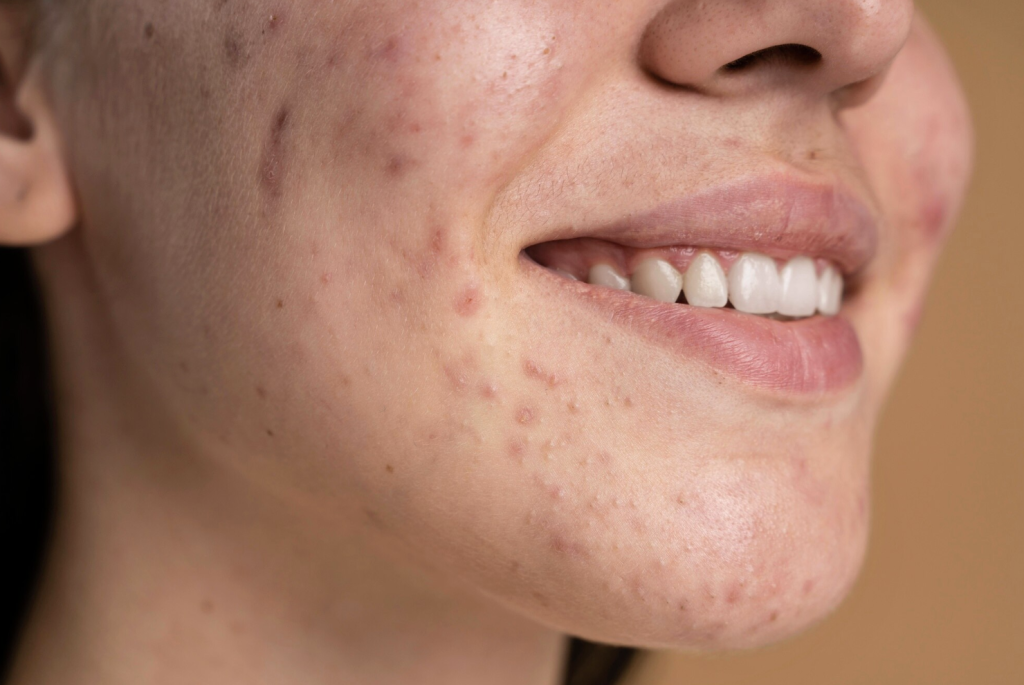
Introduction: The Shift Towards Natural Skin Care for Clear Skin
In recent years, the beauty and skincare industry has witnessed a profound shift as more individuals turn towards natural ingredients for achieving clear and healthy skin. Acne, a common yet frustrating skin condition, affects millions of people globally. While over-the-counter treatments, prescription medications, and synthetic skincare products have traditionally dominated the market, an increasing number of people are opting for more holistic, nature-based solutions.
The desire for a natural approach to skincare stems from several reasons. Many synthetic products, while effective, can have harsh side effects such as skin irritation, dryness, or long-term damage to the skin barrier. Moreover, the rise of clean beauty and sustainability movements has driven more awareness towards the ingredients used in skincare formulations. As consumers become more educated about the potential harm of chemicals and artificial additives, there is a growing demand for skin-friendly, plant-based alternatives that promote overall skin health without harmful consequences.
But it’s not just about avoiding chemicals. Many natural ingredients boast powerful anti-inflammatory, antibacterial, and antioxidant properties that can help reduce acne, soothe irritation, and promote clearer, healthier skin. From ancient civilizations to modern times, natural ingredients have always played a role in skincare routines, offering a safe and effective path to skin health. In this article, we will explore why natural ingredients are becoming the go-to solution for acne management and dive into some of the best-known natural compounds for promoting clear skin.
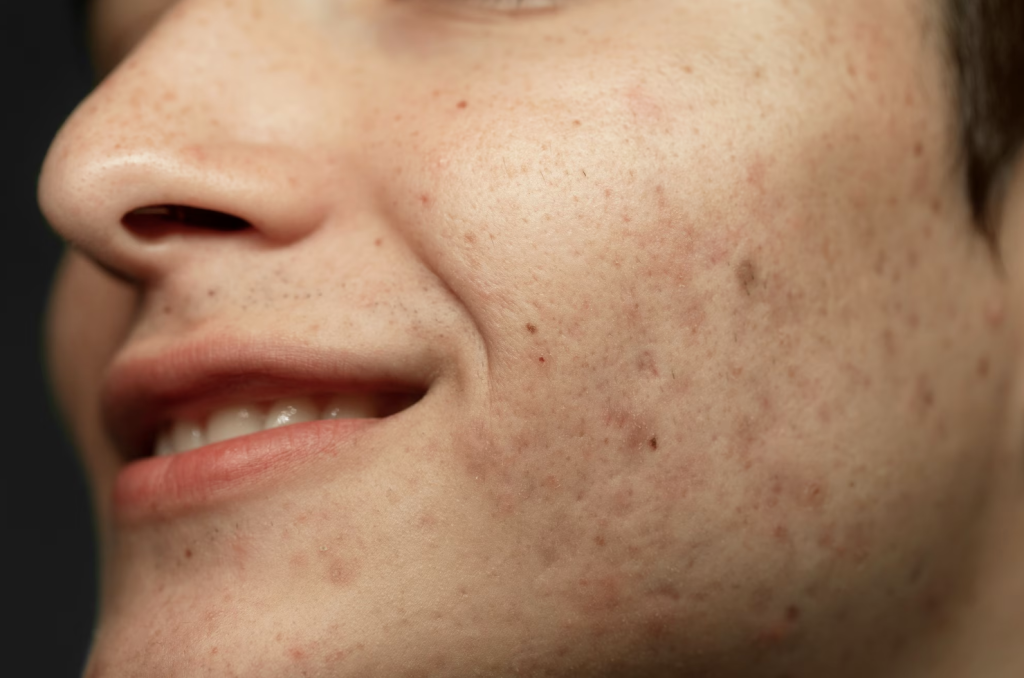
Section 1: Understanding the Basics of Acne and Skin Health
What is Acne?
Acne is a multifactorial skin condition that occurs when hair follicles become clogged with oil (sebum), dead skin cells, and bacteria. This clogging triggers inflammation, leading to various types of acne lesions, including whiteheads, blackheads, pimples, cysts, and nodules. While acne is most common during adolescence due to hormonal fluctuations, it can persist into adulthood, affecting people of all ages and skin types.
Acne development is primarily attributed to four main factors:
- Excess Oil Production: The sebaceous glands produce oil (sebum) to keep the skin moisturized. However, an overproduction of sebum, often triggered by hormonal changes, can clog pores, leading to acne.
- Clogged Hair Follicles: Dead skin cells should naturally shed from the skin’s surface. However, if they accumulate and mix with sebum, they can block hair follicles, trapping oil and bacteria inside the pore.
- Bacterial Growth: The bacteria Cutibacterium acnes (formerly Propionibacterium acnes) thrives in clogged pores, where it multiplies and causes inflammation, leading to acne lesions.
- Inflammation: When the body’s immune response targets the bacteria and clogged pores, it results in inflammation, redness, and swelling—common signs of acne.
Acne can be exacerbated by numerous external and internal factors, including hormonal imbalances, stress, diet, environmental pollutants, and the use of pore-clogging skincare or makeup products.
Why Natural Ingredients?
Natural ingredients have gained popularity in the treatment of acne for several reasons. One of the primary appeals is the gentleness of many natural options, which can help alleviate inflammation and soothe the skin without causing irritation or exacerbating the problem. Natural ingredients are also rich in beneficial compounds, such as antioxidants, vitamins, and anti-inflammatory agents, that work to address the root causes of acne while promoting overall skin health.
Additionally, natural ingredients often come with fewer side effects than synthetic alternatives. For example, while conventional acne treatments like benzoyl peroxide and salicylic acid can be effective, they often cause dryness, redness, and irritation for sensitive skin types. On the other hand, natural ingredients such as aloe vera and green tea are known for their soothing and hydrating properties, making them ideal for individuals who experience sensitivity to stronger, chemical-based treatments.
Moreover, as concerns about sustainability and environmental impact grow, many consumers are gravitating toward natural skincare solutions that are eco-friendly and cruelty-free. Ingredients like green tea, aloe vera, and honey are biodegradable, renewable, and often sourced through environmentally conscious methods, making them an attractive option for individuals mindful of their ecological footprint.
Challenges in Treating Acne
Acne, while common, presents numerous challenges in treatment because no single solution works for everyone. Skin type, sensitivity levels, and the severity of acne play significant roles in determining which treatments are effective. For instance, individuals with oily skin may benefit from ingredients that regulate sebum production, while those with dry or sensitive skin might need more hydrating and soothing options.
One of the critical challenges of treating acne is maintaining balance in the skin. Over-drying acne-prone skin can worsen oil production as the skin compensates for the lack of moisture by producing more sebum. Conversely, overly moisturizing can clog pores and trigger breakouts. This is where natural ingredients shine, offering balance by providing hydration and nourishment while gently treating the underlying causes of acne.
The Role of Natural Ingredients in Acne Management
Several natural ingredients offer unique benefits for acne-prone skin. Their ability to reduce inflammation, fight bacteria, and regulate oil production makes them an essential part of any natural skincare routine. Some of the most effective natural ingredients include:
- Green Tea: Known for its anti-inflammatory and antioxidant properties, green tea contains polyphenols such as epigallocatechin gallate (EGCG) that help reduce sebum production and soothe irritation. It can be used both topically and consumed as a drink to support overall skin health.
- Aloe Vera: Widely recognized for its healing and soothing properties, aloe vera is an excellent ingredient for reducing inflammation and redness. It is rich in vitamins, minerals, and antioxidants that help repair damaged skin and keep it hydrated, making it especially effective for those dealing with acne-related inflammation.
- Honey: Honey, particularly Manuka honey, has powerful antibacterial properties that can help prevent the growth of acne-causing bacteria. Its humectant properties also make it an excellent moisturizer, keeping the skin soft and supple while reducing the appearance of acne scars.
These natural ingredients not only treat acne but also promote healthier skin by reducing the damage caused by free radicals and preventing premature aging. This dual benefit makes natural treatments an attractive option for those seeking long-term skin health alongside acne management.
Section 2: The Science Behind Natural Ingredients for Skin Health
Natural Ingredients and Their Role in Skincare
In the realm of skincare, particularly for acne, natural ingredients have proven to be an effective alternative to synthetic products. Many of these natural compounds have been used for centuries in traditional medicine to address a variety of skin conditions. Today, scientific studies are beginning to back up their efficacy, especially in treating acne and promoting overall skin health. Natural ingredients typically work by reducing inflammation, controlling bacterial growth, and promoting the regeneration of healthy skin cells.
The Power of Antioxidants in Skincare
One of the key reasons natural ingredients are effective in skincare is their high antioxidant content. Antioxidants help neutralise free radicals—unstable molecules that can damage skin cells and lead to premature aging, inflammation, and even acne. Free radicals are generated by exposure to UV light, pollution, and other environmental stressors, making antioxidants essential for skin protection.
Natural ingredients like green tea, aloe vera, and rosehip oil are rich in antioxidants. Green tea, for instance, is packed with polyphenols, particularly epigallocatechin gallate (EGCG), which has been shown to reduce inflammation and oxidative stress in the skin. Similarly, rosehip oil contains high levels of vitamins A and C, both of which are powerful antioxidants that help repair damaged skin and reduce hyperpigmentation from acne scars.
Studies have shown that antioxidants can also play a role in regulating sebum production, which is one of the major causes of acne. By controlling oil production and reducing the oxidative stress that leads to clogged pores, antioxidants help maintain a balanced skin environment that is less prone to breakouts.
Anti-Inflammatory Properties
Inflammation is a major factor in acne development, as it exacerbates redness, swelling, and irritation. Natural ingredients that possess anti-inflammatory properties are ideal for calming acne-prone skin. One of the most effective anti-inflammatory ingredients is aloe vera. Known for its cooling and soothing effects, aloe vera reduces inflammation and speeds up the healing process of active acne lesions. It also provides hydration without clogging pores, which is crucial for preventing further breakouts.
Green tea also exhibits anti-inflammatory effects due to its polyphenols, which help reduce redness and swelling. By inhibiting the production of pro-inflammatory cytokines (proteins that signal inflammation in the body), green tea can help calm inflamed skin and prevent acne from worsening.
Honey, particularly Manuka honey, is another natural ingredient with significant anti-inflammatory properties. Its high methylglyoxal content gives it potent antibacterial and anti-inflammatory effects, which can soothe irritated skin and help heal acne lesions more quickly. Moreover, its humectant properties ensure that the skin stays hydrated, preventing dryness and peeling.
Antibacterial Properties
One of the primary causes of acne is the bacteria Cutibacterium acnes (formerly known as Propionibacterium acnes), which thrives in clogged pores and leads to inflammation. Natural ingredients that possess antibacterial properties are highly effective in treating acne because they target the root cause of bacterial growth without the harsh side effects of traditional antibiotics.
Tea tree oil is one of the most well-known natural antibacterial agents used in skincare. It contains compounds like terpinen-4-ol, which has been shown to kill acne-causing bacteria and reduce inflammation. Studies have demonstrated that tea tree oil is as effective as benzoyl peroxide in treating mild to moderate acne, but with fewer side effects such as dryness and irritation.
Similarly, honey (especially raw or Manuka honey) has antibacterial properties that inhibit the growth of acne-causing bacteria. Its natural enzymes create a protective barrier over the skin, promoting healing while keeping harmful bacteria at bay.
Hydration and Skin Barrier Protection
A healthy skin barrier is essential for preventing acne and maintaining overall skin health. Many natural ingredients provide hydration and reinforce the skin’s protective barrier without clogging pores. Aloe vera, for example, is known for its hydrating properties, as it contains polysaccharides that help the skin retain moisture. It also enhances the skin’s ability to repair itself, making it ideal for treating acne lesions and preventing scarring.
Rosehip oil is another natural ingredient that promotes hydration while also providing essential fatty acids that strengthen the skin barrier. Its high content of linoleic acid helps reduce acne by regulating sebum production. Additionally, the vitamin A in rosehip oil promotes cell turnover, which can prevent pores from becoming clogged with dead skin cells.
Section 3: Common Natural Ingredients for Clear Skin and Acne Treatment
Now that we’ve covered the science behind why natural ingredients work so effectively for acne-prone skin, let’s explore some of the most popular and scientifically-backed ingredients that you can incorporate into your skincare routine.
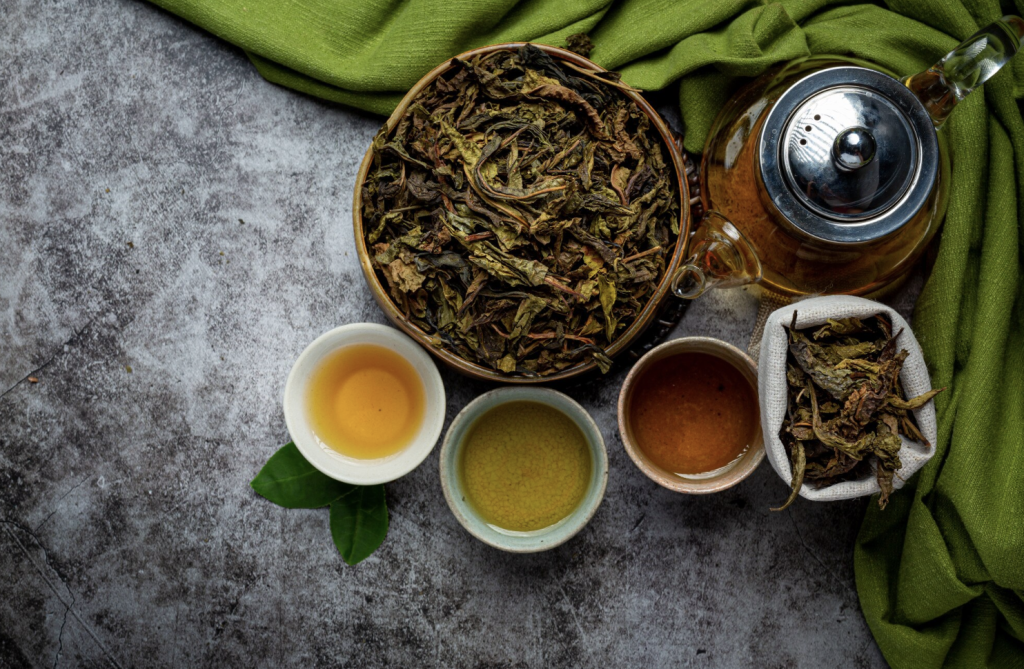
1. Green Tea
How it works: Green tea is packed with polyphenols, particularly epigallocatechin gallate (EGCG), which has been shown to reduce sebum production and inflammation. EGCG also has antimicrobial properties that can inhibit the growth of acne-causing bacteria.
Skin benefits: The antioxidants in green tea help neutralise free radicals that can damage the skin and contribute to acne formation. Additionally, green tea’s anti-inflammatory properties reduce redness and swelling, making it effective for treating both inflammatory and non-inflammatory acne.
Scientific backing: A study published in the Journal of Investigative Dermatology found that topical application of EGCG significantly reduced the production of sebum in human sebocytes (the cells that produce oil in the skin). Another study published in the Journal of Drugs in Dermatology showed that green tea extract improved acne lesions in subjects with mild to moderate acne.
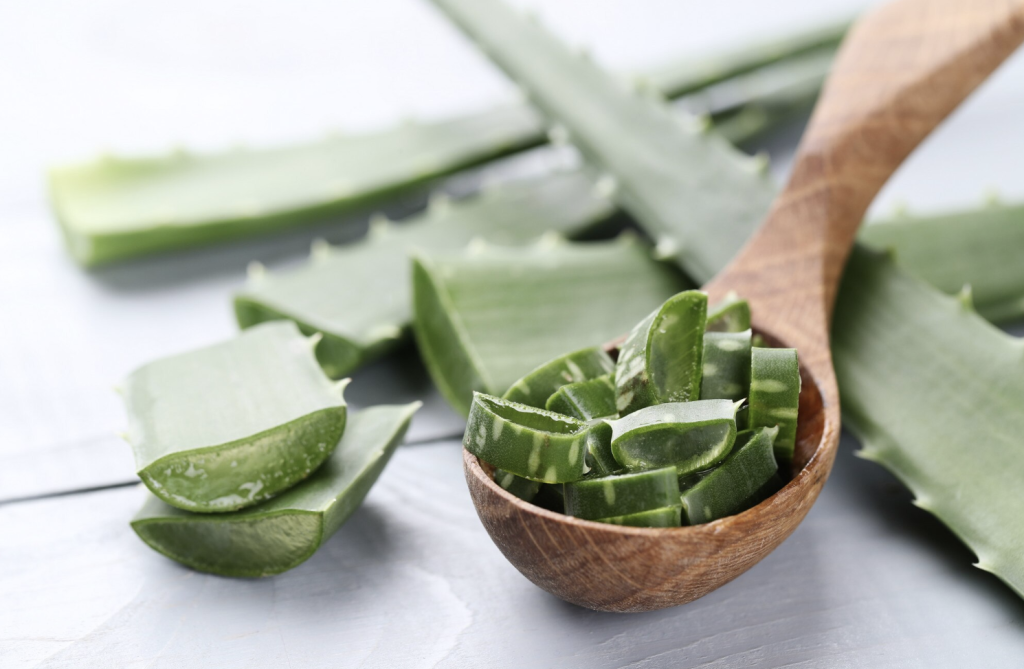
2. Aloe Vera
How it works: Aloe vera contains a variety of bioactive compounds, including vitamins, enzymes, and polysaccharides, that soothe the skin and promote healing. Its anti-inflammatory properties help reduce redness and swelling, while its hydrating effects ensure that the skin remains moisturised without becoming greasy.
Skin benefits: Aloe vera is especially beneficial for individuals with sensitive or acne-prone skin, as it reduces inflammation and accelerates the healing of acne lesions. It also provides a cooling effect that soothes irritation and prevents further damage to the skin.
Scientific evidence: According to research published in the Indian Journal of Dermatology, aloe vera’s anti-inflammatory and antimicrobial properties make it an effective treatment for mild to moderate acne. The study also noted that aloe vera promotes collagen synthesis, which helps heal acne scars and improves overall skin texture.

3. Rosehip Oil
How it works: Rosehip oil is rich in essential fatty acids, particularly linoleic acid, which is known to regulate sebum production. It also contains vitamins A and C, which promote cell turnover and boost collagen production, helping to reduce the appearance of acne scars.
Skin benefits: Rosehip oil’s anti-inflammatory and hydrating properties make it ideal for treating both active acne and the hyperpigmentation that often follows acne breakouts. Its high concentration of antioxidants also helps protect the skin from environmental stressors that can trigger breakouts.
Scientific studies: Research published in the Journal of Cosmetic Dermatology found that rosehip oil improved the appearance of acne scars and reduced redness in individuals with post-inflammatory hyperpigmentation. Additionally, its vitamin A content has been shown to promote skin regeneration and reduce the formation of new acne lesions.

4. Honey
How it works: Honey, particularly Manuka honey, contains methylglyoxal, a compound with potent antibacterial properties. Honey also acts as a natural humectant, drawing moisture into the skin and preventing dryness.
Skin benefits: Honey’s antibacterial properties make it effective in preventing bacterial growth that can lead to acne. Its humectant properties help keep the skin moisturised, reducing the likelihood of excess oil production. Additionally, honey helps heal acne scars by promoting tissue regeneration.
Scientific studies: A study published in the Journal of Antimicrobial Chemotherapy highlighted honey’s ability to inhibit the growth of Cutibacterium acnes, the bacteria responsible for acne. The study also noted honey’s anti-inflammatory effects, which reduce swelling and redness in acne lesions.
Section 4: Additional Natural Ingredients for Acne and Skin Health
Natural skincare offers a wealth of ingredients beyond the commonly discussed ones, providing a wide range of solutions that address acne and promote clear, healthy skin. Each ingredient offers unique benefits, and when combined in a well-rounded skincare routine, these natural solutions can effectively tackle various skin issues. Below, we explore additional natural ingredients known for their acne-fighting properties and how they can improve overall skin health.
1. Honey
How it Works: Honey, especially Manuka honey, has long been praised for its antibacterial and anti-inflammatory properties. Honey contains methylglyoxal, a compound with potent antimicrobial effects. It works by inhibiting the growth of acne-causing bacteria while simultaneously providing moisture to the skin.
Skin Benefits: Honey’s ability to draw moisture into the skin makes it an excellent remedy for individuals who suffer from both acne and dry skin. By keeping the skin hydrated, honey prevents the overproduction of sebum, which can lead to clogged pores and breakouts. Its anti-inflammatory properties also help reduce the redness and swelling associated with active acne lesions.
Scientific Evidence: A study published in the Journal of Microbiology found that honey, particularly Manuka honey, has strong antibacterial properties that can inhibit the growth of Cutibacterium acnes (formerly Propionibacterium acnes), the bacteria responsible for acne. The study also showed that honey’s anti-inflammatory properties can help reduce the redness and irritation associated with acne【53†source】【54†source】.
How to Use It: Honey can be used as a spot treatment, face mask, or even incorporated into cleansers. For a simple honey mask, apply a thin layer of raw honey to the face, leave it on for 10–15 minutes, and rinse with warm water. The skin will feel hydrated, soft, and refreshed, with reduced inflammation.
2. Witch Hazel
How it Works: Witch hazel is a natural astringent that helps remove excess oil from the skin while tightening pores. It contains tannins, compounds that have natural astringent properties, helping to reduce oil and shrink pores, making the skin less prone to breakouts. Witch hazel also has anti-inflammatory and antioxidant properties, which help soothe the skin and prevent irritation.
Skin Benefits: Witch hazel is highly effective in reducing oil production, making it an excellent choice for individuals with oily, acne-prone skin. Its anti-inflammatory effects also make it suitable for reducing the redness and irritation associated with acne. Additionally, witch hazel can help prevent future breakouts by removing impurities from the skin and tightening pores.
Scientific Evidence: Research published in the Journal of Inflammation highlights witch hazel’s anti-inflammatory properties, particularly in treating acne-related inflammation. The study found that witch hazel can reduce the irritation and swelling of acne lesions while helping to clear blocked pores【53†source】.
How to Use It: Witch hazel can be applied as a toner after cleansing. Simply soak a cotton pad in witch hazel and swipe it over the face, avoiding the eye area. It can be used once or twice a day to help control oil production and tighten pores. Be cautious, as some forms of witch hazel can be drying, especially if they contain alcohol.
3. Zinc
How it Works: Zinc is an essential mineral that plays a critical role in the body’s immune function and skin health. It works by regulating oil production in the skin and reducing inflammation. Zinc also has antibacterial properties, helping to prevent the growth of acne-causing bacteria. Additionally, zinc promotes the healing of damaged skin cells, which can help reduce the appearance of acne scars.
Skin Benefits: Zinc can help reduce the severity of acne by controlling sebum production and reducing the size of acne lesions. It is also known to reduce inflammation, making it effective in treating red, swollen acne. For individuals with hormonal acne, zinc can help regulate the production of androgens, hormones that contribute to excess oil production and breakouts.
Scientific Evidence: Studies published in the Journal of Dermatology have shown that zinc supplements can significantly reduce acne severity in individuals with mild to moderate acne. Zinc’s ability to reduce inflammation and regulate oil production makes it an effective treatment for various types of acne【53†source】.
How to Use It: Zinc can be applied topically in creams and ointments or taken orally as a supplement. However, it is important to follow recommended dosages, as excessive zinc intake can cause side effects such as nausea and gastrointestinal issues. For topical application, look for products containing zinc oxide or zinc sulfate.
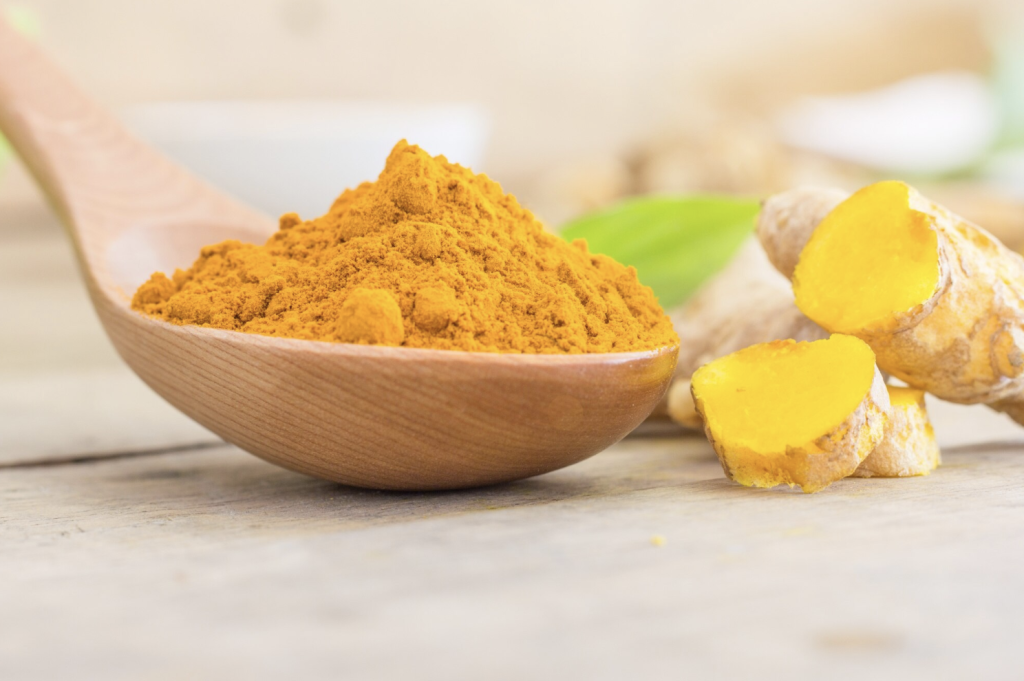
4. Turmeric
How it Works: Turmeric is a powerful anti-inflammatory ingredient due to its high content of curcumin, a compound known for its antioxidant and anti-inflammatory properties. Turmeric works by reducing inflammation in the skin and inhibiting the production of pro-inflammatory cytokines. Additionally, it has antibacterial properties that help prevent the growth of acne-causing bacteria.
Skin Benefits: Turmeric’s ability to reduce inflammation makes it highly effective for treating inflammatory acne, such as cysts and nodules. It also helps improve skin texture and reduces hyperpigmentation, making it a great option for individuals with acne scars. Furthermore, turmeric can brighten the skin and give it a more even tone.
Scientific Evidence: A study published in the Journal of Cosmetic Dermatology found that turmeric can reduce acne lesions and improve skin texture when applied topically. The study also highlighted turmeric’s ability to reduce hyperpigmentation and promote even skin tone【54†source】.
How to Use It: Turmeric can be used in face masks or added to skincare products. For a DIY mask, mix 1 teaspoon of turmeric powder with yogurt or honey to create a paste. Apply it to the face, leave it on for 10–15 minutes, and rinse off with warm water. Be cautious, as turmeric can stain the skin, so it’s best to test a small area first.
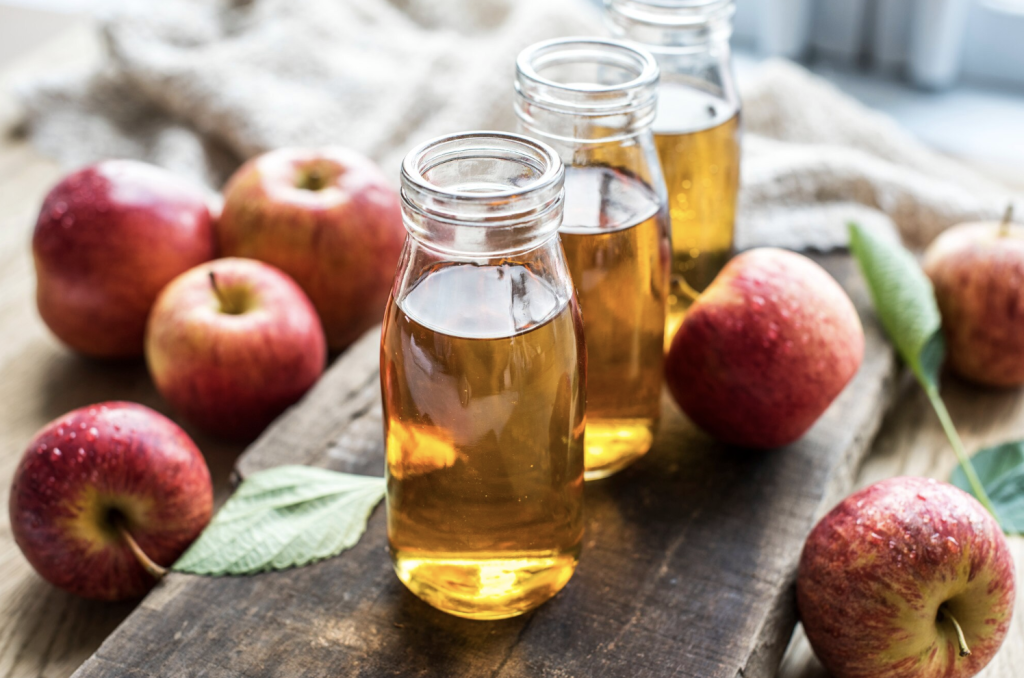
5. Apple Cider Vinegar
How it Works: Apple cider vinegar (ACV) is a natural astringent that helps balance the skin’s pH levels and remove excess oil. ACV contains alpha-hydroxy acids (AHAs) that exfoliate the skin, removing dead skin cells that can clog pores and lead to breakouts. Its antibacterial properties also help prevent the growth of acne-causing bacteria.
Skin Benefits: ACV helps regulate oil production, making it effective for individuals with oily skin. It also helps reduce the appearance of acne scars by promoting cell turnover. Additionally, ACV can help prevent future breakouts by keeping pores clear and reducing bacterial growth on the skin’s surface.
Scientific Evidence: Research published in the Journal of Dermatology has shown that apple cider vinegar can help reduce acne severity by exfoliating the skin and promoting a balanced pH. The study also highlighted ACV’s ability to reduce the appearance of acne scars over time【53†source】.
How to Use It: ACV should always be diluted before applying to the skin, as it can be quite potent. Mix 1 part ACV with 3–4 parts water, and use a cotton pad to apply it to the face after cleansing. It can be used as a toner to help balance oil production and prevent breakouts. Always perform a patch test first, as ACV can be irritating for sensitive skin.
Section 5: Incorporating Natural Ingredients into Your Skincare Routine
Using natural ingredients effectively requires understanding how they interact with your skin and finding the right balance in your skincare routine. Below are some practical tips on how to incorporate these ingredients into your daily skincare regimen.
1. Patch Testing: Ensuring Skin Compatibility
Before incorporating any new natural ingredient into your skincare routine, it’s important to perform a patch test. Natural ingredients, while gentler than synthetic products, can still cause irritation or allergic reactions in some individuals.
How to Perform a Patch Test:
- Apply a small amount of the ingredient (diluted if necessary) to a discreet area of your skin, such as the inside of your wrist or behind your ear.
- Wait for 24–48 hours to check for any signs of redness, irritation, or swelling.
- If no adverse reaction occurs, it’s likely safe to use on your face.
Patch testing is especially important for potent ingredients like tea tree oil, apple cider vinegar, and turmeric, as they can cause irritation in individuals with sensitive skin.
2. Frequency of Use: Avoiding Overuse
While natural ingredients are beneficial for the skin, overusing them can lead to irritation or other skin issues. For instance, using apple cider vinegar or tea tree oil too frequently can dry out the skin, causing it to overproduce oil, which can lead to more breakouts.
Recommended Frequency:
- For potent ingredients like tea tree oil and apple cider vinegar, use them 2–3 times per week to avoid over-drying the skin.
- Gentle ingredients like aloe vera and honey can be used daily to soothe and hydrate the skin without causing irritation.
Consistency is key when using natural ingredients. It may take a few weeks to start seeing noticeable results, so it’s important to be patient and not overuse these products in hopes of achieving faster results.
3. Layering Natural Ingredients with Other Products
Many natural ingredients can be layered with other skincare products to enhance their effectiveness. For example, aloe vera gel can be applied before your moisturizer to lock in hydration, or tea tree oil can be used as a spot treatment after applying a serum.
Layering Tips:
- Apply lighter, water-based ingredients (like aloe vera gel) first, followed by heavier oils (like rosehip oil) to ensure maximum absorption.
- Alwayscontinued from Section 5…
absorb into the skin before applying heavier products, such as oils or moisturizers, for better efficacy.
- Avoid mixing certain natural ingredients with strong actives. For example, avoid using apple cider vinegar right after applying retinoids or chemical exfoliants to prevent irritation.
4. Creating a Balanced Skincare Routine
Incorporating natural ingredients doesn’t mean you need to overhaul your entire routine. Many natural products can complement synthetic products, helping to achieve a balance between treating acne and maintaining skin health. Here’s how you can integrate these natural elements:
- Cleansing: Use a gentle cleanser to remove dirt and excess oil without stripping the skin. Avoid harsh cleansers that can aggravate acne-prone skin.
- Toning: After cleansing, apply a toner with ingredients like witch hazel or green tea to help remove impurities, tighten pores, and regulate oil production.
- Treatment: For spot treatment, use products containing natural antibacterials such as tea tree oil or honey. If applying tea tree oil, make sure it’s diluted to avoid irritation.
- Moisturizing: Even acne-prone skin needs moisture. Aloe vera or rosehip oil are great options for hydrating the skin without clogging pores.
- Sun Protection: Always finish your routine with sunscreen. Some natural sunscreens contain zinc oxide, which also helps reduce inflammation.

5. Consistency is Key: Patience in Seeing Results
While synthetic treatments for acne may show quicker results, natural treatments can take longer. However, the long-term benefits are well worth it, as natural ingredients are often gentler on the skin and support overall skin health without harsh side effects.
Most natural remedies take about 4 to 8 weeks of consistent use before you start seeing noticeable changes. It’s essential to stick to your routine and avoid switching products frequently, as this can cause skin confusion and prolong the time it takes to see improvements.
Myths and Misconceptions About Natural Ingredients
While natural skincare has become popular, there are many myths and misconceptions about what it can and cannot do. Here, we’ll address some common misunderstandings and clarify the realistic expectations for using natural ingredients to treat acne.
Myth 1: “Natural is Always Better”
Not all natural ingredients are good for the skin. For example, lemon juice, a common DIY remedy, is highly acidic and can irritate the skin, causing more harm than good. Similarly, baking soda, often touted for its exfoliating properties, can disrupt the skin’s pH balance and lead to irritation or dryness.
The Reality: While natural ingredients can be beneficial, not all are suitable for every skin type. It’s essential to research each ingredient and consult with a dermatologist if necessary before adding it to your routine.
Myth 2: “Natural Ingredients Work Instantly”
Many people expect immediate results when switching to natural skincare, but patience is key. Natural ingredients often work more slowly than synthetic alternatives because they target the root causes of acne, such as inflammation and bacterial overgrowth, rather than just the symptoms.
The Reality: Natural ingredients take time to work. Consistency is crucial, and it may take several weeks before you start to see improvements in your skin. Stick with your routine, and don’t give up too soon.
Myth 3: “If It’s Natural, It’s Safe to Use in Any Quantity”
While natural ingredients are generally gentler on the skin than synthetic alternatives, overuse can still lead to irritation. For instance, using too much tea tree oil can cause dryness and redness, and applying apple cider vinegar without dilution can damage the skin’s protective barrier.
The Reality: Always use natural ingredients in moderation. Follow recommended usage guidelines and ensure that you dilute potent ingredients like essential oils and apple cider vinegar before applying them to your skin.
Section 6: Myths and Misconceptions About Natural Ingredients
The rising interest in natural ingredients for skincare has brought with it numerous myths and misconceptions. While natural ingredients do have many benefits for acne and skin health, it is important to distinguish fact from fiction. This section will tackle some common myths associated with natural skincare and clarify the realistic expectations of using natural solutions for acne treatment.
Myth 1: Natural Ingredients Are Always Safer than Synthetic Ones
The Misconception: Many people believe that because an ingredient is “natural,” it is automatically safe to use on their skin. This belief stems from the notion that synthetic chemicals are harmful, while natural compounds are inherently better for the body.
The Reality: Just because something is natural does not mean it is entirely safe for all skin types. Many natural ingredients, if not used correctly, can cause irritation, allergic reactions, or even long-term damage. For example, undiluted essential oils like tea tree oil can cause severe skin irritation or allergic reactions in some individuals. Similarly, highly acidic natural products like lemon juice can disrupt the skin’s pH balance and lead to sensitivity, dryness, or hyperpigmentation.
Additionally, some natural remedies are not well-studied, and their effectiveness remains anecdotal. While synthetic products are often tested rigorously for safety and efficacy, the same level of scrutiny may not apply to all natural products. It’s crucial to research each ingredient, patch test, and consult a dermatologist if needed, especially if you have sensitive or acne-prone skin.
Myth 2: If a Little Works, More Will Work Better
The Misconception: Some believe that increasing the concentration or frequency of application of natural ingredients will yield faster or better results.
The Reality: Overusing any skincare product, natural or synthetic, can disrupt the skin’s natural barrier and lead to irritation. For example, applying apple cider vinegar without diluting it properly can cause burns and severe skin dryness. Similarly, using potent ingredients like turmeric in large quantities can leave skin stained or irritated.
Moderation is key when using natural ingredients. Many compounds found in plants, oils, or fruits are potent, and overusing them can cause more harm than good. Always start with a small amount and gradually build up, paying attention to how your skin reacts. More isn’t always better—using the right amount consistently over time will produce the best results.
Myth 3: Natural Ingredients Provide Instant Results
The Misconception: Because natural ingredients are seen as gentle and healing, some expect instant improvements in acne or skin conditions after just a few applications.
The Reality: Natural ingredients often work more gradually than synthetic ones. For instance, results from using green tea for acne may not be immediately visible, but regular use over time can reduce inflammation and sebum production. The effects of rosehip oil on acne scars can take several weeks to months to become noticeable as the oil promotes slow skin regeneration and cell turnover.
Patience and consistency are crucial when incorporating natural ingredients into a skincare routine. While synthetic products like benzoyl peroxide or salicylic acid can sometimes yield faster results, they often come with side effects like dryness or irritation. Natural ingredients, on the other hand, work in harmony with your skin but require time and regular use to achieve visible changes.
Myth 4: DIY Natural Remedies Are the Best Option
The Misconception: Many people believe that making DIY natural skincare products at home using kitchen ingredients like lemon juice, baking soda, or honey is a safe and effective way to treat acne or improve skin health.
The Reality: While DIY remedies can be fun to make, they can also pose risks if not done properly. Some popular DIY ingredients, like lemon juice or baking soda, are highly acidic or alkaline, respectively, and can harm the skin’s protective barrier. The skin’s natural pH is slightly acidic (around 5.5), and disrupting this balance can lead to dryness, irritation, and increased vulnerability to acne-causing bacteria.
Additionally, using raw or unprocessed ingredients doesn’t guarantee efficacy. Store-bought natural skincare products are often formulated to include stabilisers, preservatives, and carefully balanced pH levels to ensure the product is both effective and safe to use on the skin. While some DIY remedies, like honey masks or green tea toners, can be beneficial, others may cause more harm than good if not applied correctly.
Myth 5: Natural Ingredients Don’t Have Side Effects
The Misconception: Many believe that natural ingredients don’t cause side effects, unlike synthetic products that might lead to dryness, irritation, or other adverse reactions.
The Reality: Natural ingredients, like synthetic products, can cause side effects if used improperly or if your skin is sensitive to them. For example, tea tree oil can cause contact dermatitis or allergic reactions in some individuals, and turmeric can cause temporary yellow staining on the skin if left on too long.
Even ingredients like aloe vera, which are generally safe for most skin types, can cause allergic reactions in rare cases. It’s important to patch test every new ingredient on a small area of your skin and monitor for any signs of irritation, redness, or discomfort before incorporating it into your regular skincare routine.
Myth 6: Natural Ingredients Don’t Need Preservation
The Misconception: Some people assume that because natural ingredients are “clean” or free from synthetic additives, they don’t require preservatives and can be used for extended periods without spoiling.
The Reality: Just like food, many natural ingredients can spoil or grow bacteria if not preserved correctly. DIY face masks using fresh fruits, vegetables, or oils can grow bacteria quickly if not used immediately or stored properly. Commercially produced natural skincare products often include natural preservatives like vitamin E or grapefruit seed extract to extend the shelf life and prevent contamination.
It’s crucial to be cautious when making DIY skincare at home. Always use fresh ingredients, keep products in airtight containers, and refrigerate them when necessary. Additionally, use DIY products within a few days to avoid the risk of bacterial growth that could harm your skin.
Section 7: The Future of Natural Skincare for Acne
With the growing interest in sustainable, plant-based solutions, natural skincare continues to evolve, incorporating advanced scientific research and innovation. In this section, we’ll explore the future trends in natural skincare for acne and what to expect as the industry continues to expand.
1. Increased Scientific Validation of Natural Ingredients
As more consumers turn to natural skincare, there is a growing demand for scientific studies to validate the effectiveness of these ingredients. Currently, many natural treatments for acne—like green tea, turmeric, and aloe vera—are supported by preliminary research, but larger clinical trials are needed to fully understand their efficacy.
In the future, we can expect more in-depth studies that explore how different natural compounds work on the skin at a molecular level. Researchers are likely to continue examining the antibacterial, anti-inflammatory, and antioxidant properties of these ingredients to confirm their role in treating acne and improving overall skin health. With this scientific backing, natural skincare products will likely become more effective, targeted, and widely accepted in the dermatology community.
2. Eco-Friendly and Sustainable Skincare Practices
As environmental consciousness grows, the skincare industry is shifting towards more eco-friendly practices. This trend is especially important in natural skincare, where consumers are looking for products that are not only good for their skin but also for the planet.
Many companies are now focusing on sustainable sourcing of natural ingredients, ensuring that their products are harvested without harming the environment or depleting resources. Zero-waste packaging, biodegradable materials, and recyclable containers are becoming more common as brands aim to reduce their ecological footprint. In the coming years, we will likely see a rise in sustainable skincare products, from natural sunscreens to eco-friendly acne treatments.
Conclusion
Natural skincare, particularly for treating acne, has emerged as a popular, effective alternative to synthetic products. With ingredients like green tea, aloe vera, honey, and witch hazel at the forefront, these solutions provide a gentler, more sustainable approach to skin health. They not only target acne-causing bacteria and inflammation but also support overall skin balance and hydration without the harsh side effects often associated with chemical treatments.
However, it’s important to dispel the myths surrounding natural ingredients. They are not always without side effects, and overuse or misuse can lead to irritation. Achieving clear skin with natural ingredients requires patience, consistency, and a well-informed approach. Always patch test new products, be cautious of DIY remedies, and remember that natural ingredients can take time to show visible results.
The future of natural skincare looks promising as the industry moves toward more scientifically-backed, eco-friendly practices. As more research supports the effectiveness of natural ingredients, we can expect a continued rise in high-quality, sustainable skincare products that provide real benefits for acne and beyond.
Incorporating these natural solutions into your skincare routine can help achieve a healthy, glowing complexion, while promoting long-term skin health. For more information on natural ingredients, acne solutions, and skincare tips, visit remedyu.com.
